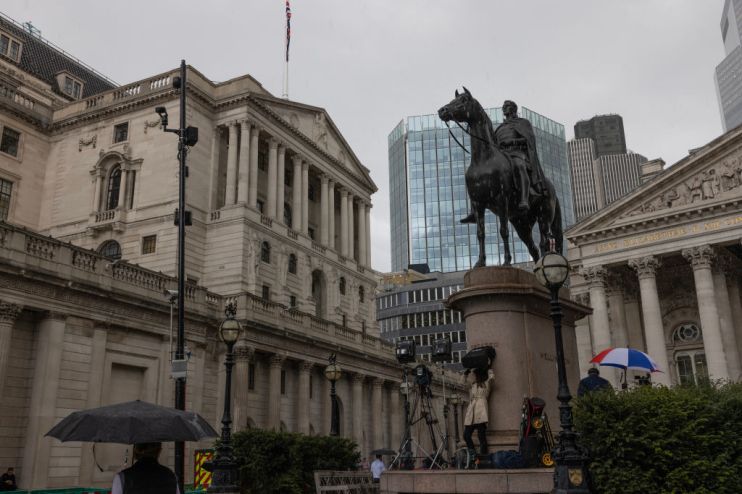Resolution Foundation: Bank of England needs more firepower to fight downturns

The Bank of England needs greater firepower to enable it to stimulate the economy in a crisis, the Resolution Foundation said on Thursday.
With debt rapidly rising, the think tank warned that the UK would quickly face an unsustainable debt burden without a fundamental reset of fiscal and monetary policy.
Between 2007 and 2023, the UK’s debt-to-GDP ratio has trebled with debt now equal to GDP. This is the largest peace-time debt rise in over 300 years of fiscal data, the Resolution Foundation said.
Debt has risen so quickly because governments are forced to intervene to tackle ‘once-in-a-lifetime’ shocks, such as Covid and the financial crisis. While debt falls gradually between these events, another shock simply ratchets up debt levels again.
“Continuing on a path of debt rising in each downturn but not being reduced between shocks will leave the UK’s public finances on an unsustainable path, requiring implausibly large tax rises or spending cuts,” James Smith, research director at the Resolution Foundation, said.
If interest rates remain high, the cost of servicing government debt could rise to around five per cent of GDP. But the Resolution Foundation cautioned that lower rates could also send debt spiralling if it meant fiscal policymakers were forced to take the strain of stimulating the economy.
To ease the pressure on government in the event of a crisis, the Bank of England needs more space to stimulate the economy, it argued.
By raising the inflation target from two to three per cent, the Bank of England would be more able to lower interest rates in a downturn. The Bank should also be able to move interest rates into negative territory to stimulate demand.
“A new inflation target should be introduced carefully, only if we return to a low-interest-rate world, only after the current two per cent target has been hit, and ideally in coordination with other advanced economies,” the report said.
“The Bank of England needs greater monetary firepower, secured by enabling slightly negative interest rates and taking steps to move to a three per cent inflation target if we return to an ultra-low interest rate world,” Smith said.
The report also argued that the government should target support at the most vulnerable, as opposed to operating the more expensive universal support.